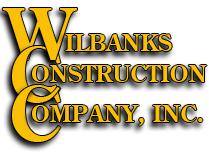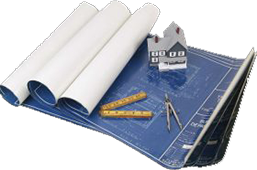





The following information can be used as an outline for choosing a reputable contractor. By utilizing this information, you can potentially eliminate problems by choosing the right contractor the first time. Before committing to a construction project of any kind you should know the following:
Questions to ask yourself
What work needs to be done? Will the work add value to the property? How much do you have budgeted for the work? What inconveniences will be experienced while work is being done?
Getting Bids
You should get at least three competitive bids for your project. Bids will vary from contractor to contractor. Sometimes these bids will vary dramatically. Going for the lowest bid is the basic idea but, beware of the "low ball" bid. This can result in unsatisfactory work that will cost you more in the long run. Make sure that the bids include quality materials that are guaranteed by the supplier or manufacturer. Competitive bids are free of charge and will ensure you pay a competitive price for your project.
Contractors Insurance
Ask for proof of insurance. Take the information and call the insurance company to verify that it is currently up to date. Also, if they have other employees, ask if they have workman's compensation. This is required by law! If the contractor is not insured you could be liable for any accidents. Don't put yourself in this situation.
References
Ask for references!! This can be one of your most valuable resources. You can ask specific questions about the contractor such as “Was the job done in a timely manor? Was the work satisfactory? Would you refer the contractor to friends or family?
Signing a Contract
Make sure that you understand every detail of the contract before signing. The contract should include complete information on the contractor (ex. name, address, phone numbers, etc...) and description of the job or a scope of work (ex. materials, time schedule, clean up after completion, total price, payment terms, etc...). NEVER pay everything up front. The best way to pay for your project is in two separate payments called "draws". One draw in the beginning of the job and the other after the job is completed. This is a happy medium that gives you protection and at the same time allows the contractor to have enough money for needed business supplies and payroll. The goal is to find a balance that does not put either the contractor or the client at risk. Also, any warranties need to be in writing. Don't take anything for granted. Get a copy of the contract for your records.
During and Completion
Get involved with the contractor and his crew. Tell them exactly what you want. When the job is done do a final walk through and make a punch list. Have the contractor touch up or fix anything that is unsatisfactory. Follow Up Upon completion the job should be done up to your standards. The contract and labor warranty are very important things to remember, the contractor should guarantee the labor side of the warranty against certain defects. A one to three year warranty is not uncommon. So, you should be covered by labor (contractor warranty) and there will be a manufacturer warranty that covers the material side of the contract.
Lowball contractor bids can be high-stress
Going with the lowest-bid contractor could be highly disappointing. CR subscribers who did so for kitchen remodeling projects weren’t as pleased with the results, based on responses to our latest Annual Questionnaire. Choosing the least-expensive pro also lowered the odds of having issues resolved during the project and after it was done.
Also among the less satisfied in our survey: those who chose a contractor from the phone book or online, not through references, and those who did not check out other projects their pro had handled.
Call Jeff @ 770-318-5071 to set an appointment.
WE LOVE YOUR HOME AS MUCH AS YOU DO!